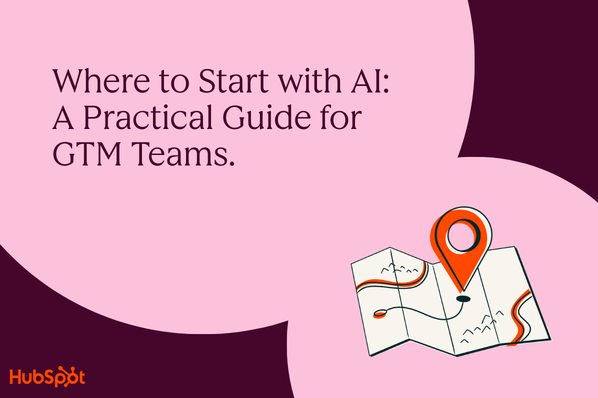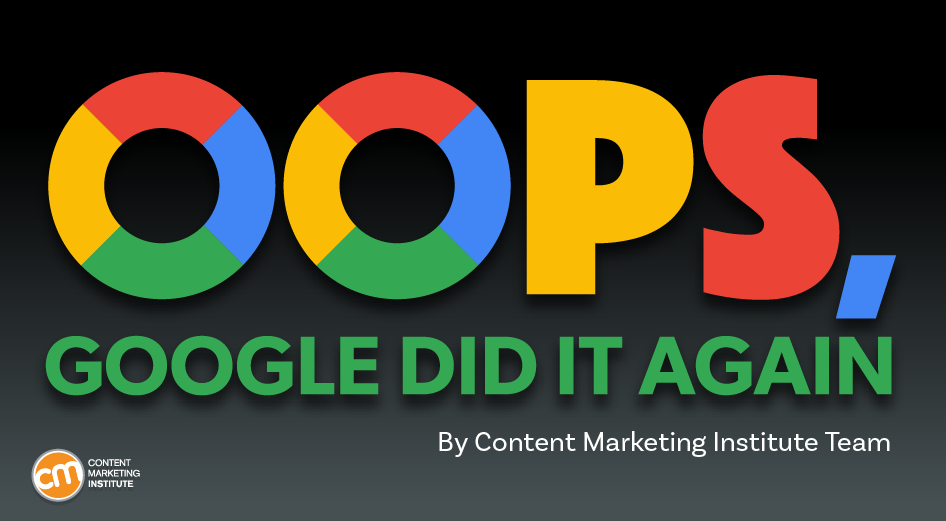In the immortal words of Britney Spears, “Oops, they did it again.”
No, we’re not talking about the US government approving a TikTok divestiture. It’s possible, but so remote that it won’t stop people from investing every dime in it.
We’re talking about Google’s most recent oops. Last week, they delayed the deprecation of the third-party cookie for yet another year.
So, we turned to CMI’s chief strategy advisor, Robert Rose, who had fallen for Google’s proclamation that 2024 is the end of third-party cookies for his take. Watch this video or read on:
Yes, I fell for their nonsense. I thought they were serious when they launched cookie removal for some Chrome users in a trial. But Google seems determined to make me look dopey.
When I think of it, my relationship with Google is like Britney’s song. “They play with my heart … got lost in the game. They said, ‘You think I’m in love … I’m not that innocent.’”
Well, let’s get to their excuse this time and what it means for marketers.
Google postpones cookies’ demise
If you have been following along, the update on the “disappearing” third-party cookie is that it’s not really disappearing.
Last week, Google — for the third time in as many years — delayed the death of the third-party cookie in its Chrome browser. And once again, complicated the ad industry’s move away from surveillance-based programmatic advertising.
In The Privacy Sandbox, Google writes that it has “recognized that there are ongoing challenges related to reconciling divergent feedback from the industry, regulators, and developers, and will continue to engage closely with the entire ecosystem.”
In other words, everybody’s pissed because they think what Google produces is too self-serving. So — spoiler alert — Google hopes to do it in 2025.
Given where they are now, that’s very unlikely.
Complaints and revenue rise
Last Friday, the Competition and Markets Authority (CMA) let loose on the Google update efforts. The UK governmental organization acts as a watchdog of Google’s Privacy Sandbox. It tries to figure out how much of the third-party cookie deprecation will benefit Google more than anybody else. So, they’ve had lots and lots to say over the years of Google’s update efforts.
Most recently, the CMA update listed almost 80 concerns, about double the number it shared just a few months ago. Its concerns center primarily on what seems like Google’s finagling of third-party deprecation so it can keep the first-party data within its ecosystem and use it how it wants.
Keep in mind that Alphabet, Google’s parent company, also announced last week that it crushed its earnings. Revenue is up, and the company has distributed its first dividend. Advertising revenue across their ecosystem, especially from YouTube, drove that success.
So, Google wants to ensure that whatever they do with the third-party cookie doesn’t interfere with how they make their money.
The CMA is saying to put on the brakes. Other advertising groups say, “Hold up, let’s figure this out some more,” and advertisers are eager to stomp on the brakes, too. So, Google is more than willing to pull over to the side of the road and sort it out.
What’s next?
So, what happens? Nothing.
When I last wrote about this, I reported research that found 58% of advertising professionals believed cookie deprecation would be pushed to 2025, and many weren’t doing anything about the planned disappearance.
They were right about the first part.
We could see another two- or three-year delay by Google on third-party cookie deprecation and see surveillance-type advertising continue as a major player for the foreseeable future.
The IAB Tech Lab CEO Anthony Katsur has said, “This delay should not be an excuse for the digital advertising industry to be complacent.”
But it kind of does. It’s clear Google and the industry’s many hurdles mean they won’t be ready next year for the end of third-party cookies.
However, here’s the thing. Media companies aren’t waiting for Google to make the move. They’re quickly securing first-party data to build better data and monetization strategies. They’re moving to cookie-less solutions for advertising. Some brands are starting to adopt more first-party data solutions to ensure their own capabilities are clear.
I’m still a huge fan of getting ready with your own first-party data answers because that’s a smart strategy.
But for the moment, I can’t get the Brittany song out of my head, “It might seem like a crush, but it doesn’t mean that I’m serious, cuz to lose all my senses, that is just so typically me.”
HANDPICKED RELATED CONTENT:
Cover image by Joseph Kalinowski/Content Marketing Institute










